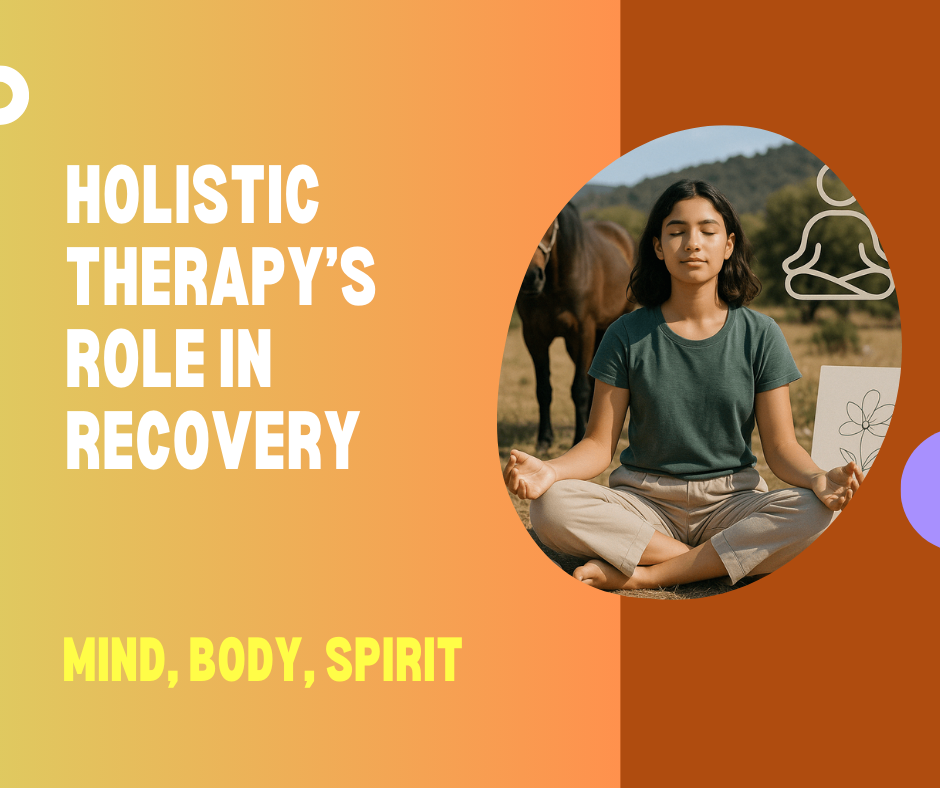
How Does Drug Use Impact a Teen’s Mental Health?

When Teen Drug Use Meets Mental Health: A Family’s Urgent Concern
Watching your teen struggle, whether with mood swings, anxiety, or sudden secrecy, can leave families feeling overwhelmed, isolated, and deeply concerned. The stakes are high: adolescent substance abuse can have profound, lasting impacts not just on physical health, but on a teen’s emotional and behavioral well-being. At Horizon Recovery, we believe understanding how drugs affect the teenage brain and recognizing the warning signs are crucial first steps toward healing.
In this guide, grounded in the expertise of founder Brian Carlisle, RN, FNP-C, MSLE, and the Horizon Recovery Team’s 15+ years of experience in crisis intervention and adolescent behavioral health, we’ll empower families with knowledge, compassion, and hope—right here in Arizona and beyond.
The Adolescent Brain: Why Teens Are Especially Vulnerable to Substance Use
The Science of Development
Adolescence is a season of rapid change. The brain’s prefrontal cortex, the “control tower” responsible for decision-making, impulse control, and emotional regulation, continues developing well into the mid-20s (UAB Medicine). Meanwhile, pleasure and reward centers mature much earlier, making teens naturally more drawn to new experiences and risks.
When substances like alcohol, marijuana, nicotine, or prescription drugs are introduced:
- The delicate process of brain wiring is disrupted.
- Neurotransmitter systems (dopamine, serotonin) become imbalanced, impacting mood and motivation (Translational Psychiatry, 2024).
- The ability to regulate impulses, form memories, and learn is compromised.
The Lasting Impact
Research shows that teen drug use can:
- Impairs cognitive function (memory, attention, reasoning).
- Increase vulnerability to mental health disorders such as depression and anxiety (Child Mind Institute).
- Raise the lifetime risk of substance use disorders, especially with early initiation (Addiction Center).
Takeaway: The teenage brain is “under construction,” making it both resilient and uniquely at risk from the effects of drugs.
Drug Use and Teen Mental Health: Trigger, Symptom—or Both?
When Mental Health Challenges Lead to Drug Use
Teens grappling with untreated conditions, like anxiety, depression, ADHD, or trauma, may turn to substances as a form of self-medication. This is especially true for:
- Those experiencing teen anxiety and drug use attempt to “calm nerves” or cope with social pressure.
- Those facing depression in teens, using drugs or alcohol to numb emotional pain (Child Mind Institute).
A staggering half of adolescents with untreated mental health disorders develop substance use issues, and two-thirds of teens struggling with substance use disorders also have a mental health condition.
How Drug Use Worsens Mental Health
Unfortunately, the relief drugs appear to offer is temporary. Substance use disrupts mood regulation, deepens depression and anxiety, and makes it harder for teens to adopt healthy coping skills. The cycle becomes self-perpetuating, and more emotional pain leads to more drug use, complicating recovery.
- Impulse control lessens: Judgement becomes impaired, increasing risk-taking behaviors (e.g., unsafe sex, reckless driving) (Mayo Clinic).
- Social isolation and academic troubles mount: Substance use can alienate teens from positive peers, family, and school engagement.
- Long-term risk soars: Drug-related brain changes can persist into adulthood, intensifying problems across life domains (PubMed).
Why Teens Use Drugs: Social, Emotional, and Systemic Pressures
Understanding why teens use drugs is essential to lasting prevention and recovery. Common drivers include:
Social Influences
- Peer Pressure: The desire to fit in or be accepted echoes throughout adolescence.
- Social Media: Platforms glamorize substance use, making risky experimentation appear normal (New Dawn Treatment Centers).
Emotional Needs
- Stress and Anxiety: Academic pressures, identity struggles, and family conflict can push teens to seek relief.
- Low Self-Esteem or Loneliness: Drugs may seem to “fill” a social or emotional void.
Systemic and Environmental Factors
- Easy Accessibility: The rise of high-THC marijuana, e-cigarettes, and prescription medications increases exposure risk.
- Family History: Genetics and home environment can strongly influence risk.
Spotting the Early Signs of Teen Drug Abuse
Early signs of substance use can be subtle or direct, but parents and guardians are uniquely positioned to notice when something isn’t right.
Physical Signs
- Bloodshot eyes, sudden weight change, poor hygiene, or unusual tiredness/hyperactivity (
- Hazelden Betty Ford
- ).
- Hazelden Betty Ford
- ).
Behavioral Changes
- Withdrawing from family or friends.
- Secretiveness, lying about whereabouts, or locking doors.
- Decline in academic performance or loss of interest in activities once enjoyed.
Emotional Indicators
- Unexplained mood swings, irritability, or heightened impulsivity.
- Signs of depression in teens: sadness, hopelessness, loss of motivation.
Environmental Clues
- Discovery of drug paraphernalia.
- Frequent borrowing or missing money/valuables.
If you notice several of these signs of teen drug abuse, it’s time for a gentle but direct conversation.
Talking to Teens About Drugs: How to Open the Conversation
Effective communication is your best tool. Here’s a parent guide to teen drug use conversations, grounded in empathy and openness:
- Pick a calm, private time, not in the heat of an argument.
- Express concern, not anger: “I’ve noticed you seem more withdrawn. I care about how you’re feeling.”
- Ask open-ended questions: “Is there something you’re struggling with?” “Are you feeling overwhelmed?”
- Normalize mental health discussions: “Lots of teens feel pressure or get anxious, let’s talk about it.”
- Emphasize love and support: Let them know they’re not alone.
Avoid threats or scare tactics; connection, built on trust and listening, is what creates safety for honest sharing (Wellspring Center for Prevention).
Pathways to Healing: Where Families Can Get Help
When & Where to Seek Help
If your teen shows persistent warning signs or expresses emotional distress, professional assessment is critical. Early intervention prevents escalation and promotes healing, addressing both substance use and co-occurring mental health concerns.
Options include:
- Mental health treatment for teens includes Cognitive-behavioral therapy, family therapy, and trauma-informed care.
- Teen recovery programs are Holistic and individualized, offering evidence-based support for both the teen and their family (Horizon Recovery Services).
- Teenage addiction help providers experienced with adolescent behavioral health and dual-diagnosis cases.
Community and National Resources:
- NAMI (National Alliance on Mental Illness)
- SAMHSA (Substance Abuse and Mental Health Services Administration Treatment Locator)
How Horizon Recovery Can Help
At Horizon Recovery, our Arizona-based team cares deeply about:
- Integrating mental health and substance use treatments for teens.
- Involving families at every step, providing education, family therapy, and ongoing support.
- Using tailored, holistic approaches including neurofeedback, skill-building, and life coaching.
Learn more or reach out for a confidential assessment on our contact page.
Summary: Hope Begins with Knowledge—and Action
Teen drug use and mental health are deeply intertwined. The unique vulnerabilities of the developing brain mean that adolescent substance abuse can have lifelong consequences, but with early intervention, professional help, and family support, recovery is always possible.
No matter where your family is starting, or how discouraging things may seem, know this: You are not alone. Help, healing, and hope are available for your teen and for your whole family.
For more guidance, resources, or support tailored to your family’s needs, visit Horizon Recovery’s website or explore our services for parents and teens.
Frequently Asked Questions (FAQs)
Q: What are the early signs that my teen may be using drugs?
A: Red flags include withdrawal from family, mood changes, decline in school performance, secretive behavior, and unexplained physical symptoms such as bloodshot eyes or sudden weight changes. Read more
Q: How can I support my teen who is anxious and possibly using substances?
A: Approach with empathy, open a dialogue, and seek integrated support addressing both mental health and substance use. Parent resources
Q: Is it possible for my teen to recover from both mental health and substance use challenges?
A: Absolutely. With comprehensive care, like that offered at Horizon Recovery, many teens and families find healing.
References & Further Reading
- Child Mind Institute—Mental Health Disorders and Teen Substance Use
- UAB Medicine—The Effects of Drugs on Adolescent Brains
- Translational Psychiatry (2024)—Consequences of Adolescent Drug Use
- Addiction Center—Health Effects of Teen Substance Abuse
- Mayo Clinic—Teen Drug Abuse: Help Your Teen Avoid Drugs
- Hazelden Betty Ford—Warning Signs of Teen Drug Abuse
- SAMHSA—Find Treatment Resources
- New Dawn Treatment Centers—Parental Guide for 2025
- Panorama Psychology—A Parent’s Guide to Teen Substance Use
If you’re ready to take the first step, contact Horizon Recovery today. Together, we can build a foundation of hope and healing for your teen and your entire family.
This article is for educational purposes and not a substitute for medical advice. For urgent support, please reach out to a mental health professional or call SAMHSA’s helpline at 1-800-662-4357.
More posts like this
.svg)
Guiding your teen’s path to mental clarity, sobriety, and a hopeful future.
For more information or to schedule a visit, please reach out to us today. Our empathetic and caring team is here to support you every step of the way.
.svg)
.avif)
.svg)
.svg)



